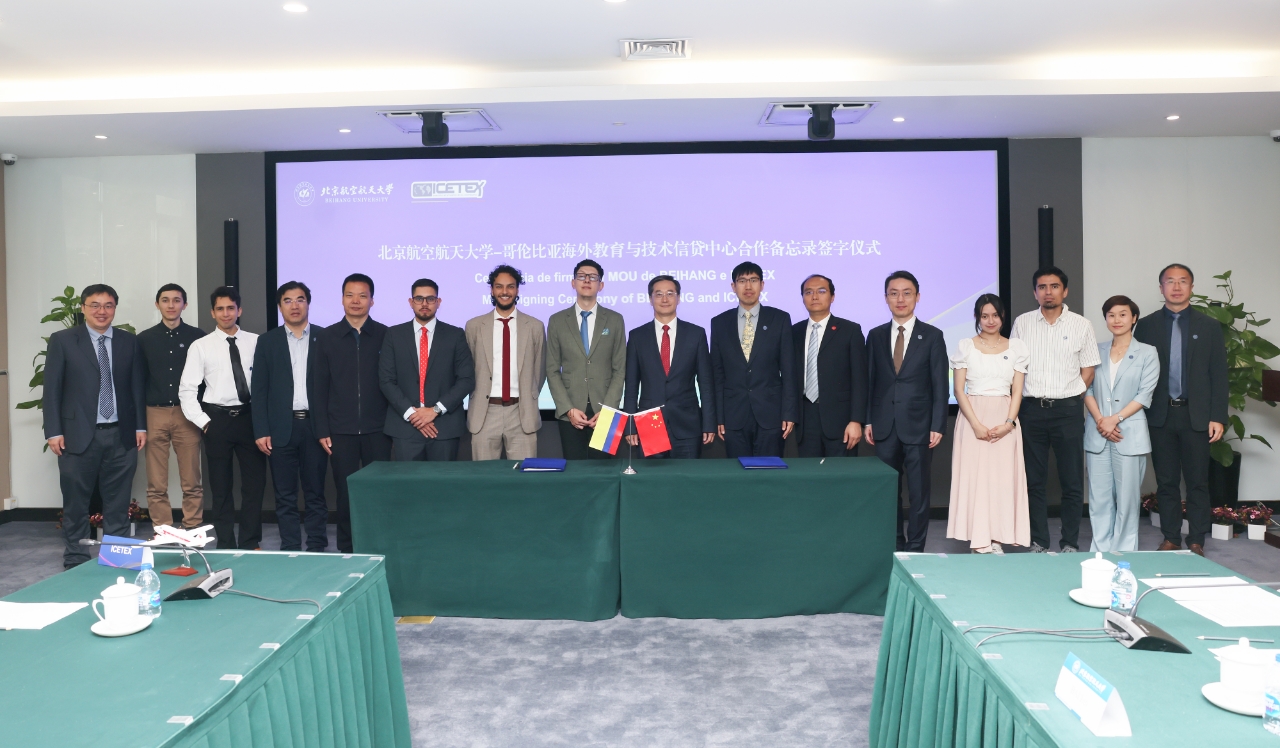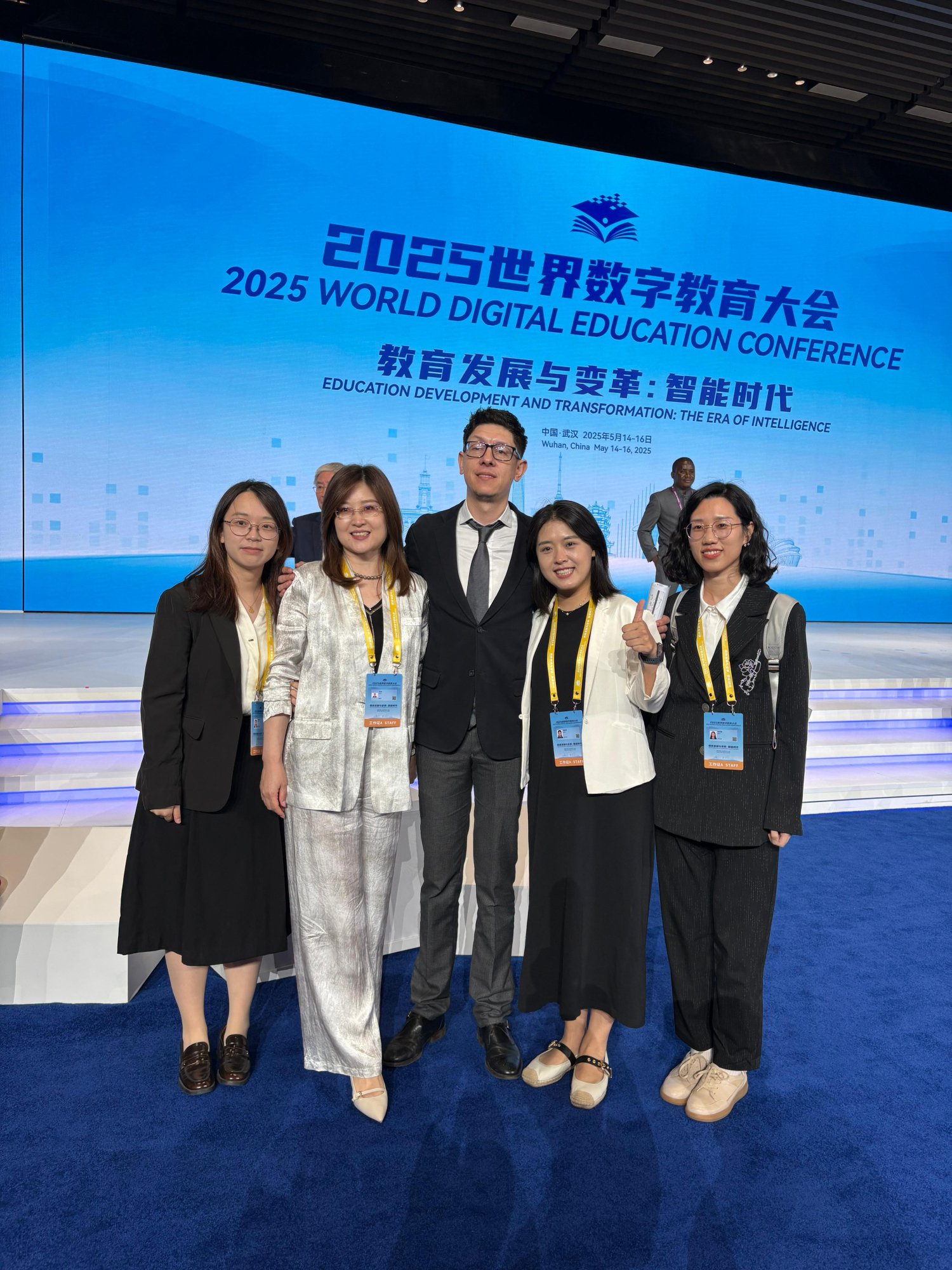Icetex signs memorandum of understanding with Chinese universities to create new scholarships and exchanges

Within the framework of the visit of members of the Colombian government to China, led by President Gustavo Petro, the Minister of Education, Daniel Rojas, forged important ties with the Chinese higher education system. Representing Icetex, the minister signed a memorandum of understanding with three renowned Chinese universities: South China Agricultural University (SCAU), Tianjin University of Technology (TUT), and Beihang University (BUAA).
The purpose of the memorandum is to strengthen academic, scientific, and cultural cooperation by creating opportunities for the exchange of students, professors, researchers, and experts between Colombia and China. The initiatives will include scholarships, dual-degree programs, virtual and in-person mobility, and institutional capacity building through the Icetex International Experts program.
"With this memorandum, we consolidate an Icetex with an international vocation, as was its founding nature. We are connecting Colombia to the world, so that more young people can access cutting-edge knowledge and enhance their transformative potential in the regions," stated Minister Daniel Rojas.
The memorandum is valid until August 6, 2028, without committing any direct financial resources, but it enables the conclusion of specific agreements that will allow for the implementation of exchanges, mobility, and other forms of collaboration.

Education Minister Daniel Rojas signs an agreement with Chinese universities. Photo: Ministry of Education
South China Agricultural University (SCAU): Located in Guangzhou, this is a leading public university specializing in agriculture, biotechnology, and environmental sciences. It is part of the Chinese government's "Double First-Class" project. It has multiple world-class laboratories and international partnerships in Asia and Africa.
Tianjin University of Technology (TUT): A public institution recognized for its practical focus on engineering, automation, optics, and emerging technologies. It has over 80 international agreements and is a benchmark for university-industry collaboration.
Beihang University (BUAA): A leader in aerospace and technological innovation, it has been instrumental in the development of China's space program. It is a comprehensive university with a strong focus on artificial intelligence, robotics, and materials science, with more than 200 global agreements and cooperation with institutions such as Airbus, Boeing, and the European Space Agency.
Colombia participated in the World Conference on Digital Education As part of the visit, Minister Rojas participated this Wednesday in the opening plenary session of the World Digital Education Conference 2025 (WDEC) , which is being held in Wuhan, Hubei Province, China.
Under the theme "Development and Transformation of Education: The Age of Intelligence," the event brought together representatives from governments, universities, schools, international organizations, NGOs, and businesses to jointly promote innovations in the field of digital education throughout the entire educational process: teaching, learning, management, assessment, and research.

Minister of Education Daniel Rojas during the 2025 World Conference on Digital Education. Photo: Ministry of Education
During his speech, Minister Rojas emphasized that "artificial intelligence is revolutionizing the way we learn and teach. From the Colombian context, it represents a transformative opportunity to close historical gaps between urban and rural areas and advance toward more personalized, equitable, and high-quality education."
The head of the education ministry emphasized that AI-based solutions are already being explored in Colombia to improve access and quality in remote areas, as well as to enhance adaptive learning strategies and intelligent tutoring. However, he also warned about the need to ensure equity, the protection of students' personal data, and the transparency of algorithm-based systems.
"The potential of AI in education is immense, but we must move forward responsibly. It's not just about integrating technology, but about building an educational transformation with social, pedagogical, and ethical meaning," said Rojas Medellín.
The World Conference on Digital Education 2025 will continue until May 17, with an agenda focused on the challenges and opportunities of AI, international cooperation in digital education, and the promotion of inclusive and sustainable access to knowledge.
MATEO CHACÓN ORDUZ | Deputy Editor, Education - Today's Life
eltiempo




